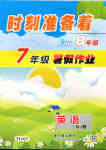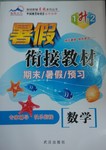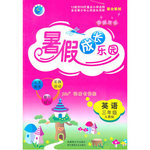题目内容
His ability is beyond question; _____ has been in doubt is ____ he is prepared to work hard
A. what; that B. which; whether C. what; whether D. that; that
C

 时刻准备着暑假作业原子能出版社系列答案
时刻准备着暑假作业原子能出版社系列答案 暑假衔接教材期末暑假预习武汉出版社系列答案
暑假衔接教材期末暑假预习武汉出版社系列答案 假期作业暑假成长乐园新疆青少年出版社系列答案
假期作业暑假成长乐园新疆青少年出版社系列答案When he was a boy, Tim was much influenced(影响) by the books about the sea, but in fact by the age of fifteen he had decided to become a doctor rather than a sailor. His father was a dentist and as a result, Tim had the opportunity of meeting many doctors either at home or elsewhere. When he was fourteen he was already hanging around the clinic (诊所) of a local doctor where he was supposed to help to wrap up medicine bottles, but was actually trying to listen to the conversations(会议) taking place between the doctor and his patients in the next room.
During the war Tim served in the Navy (海军) as a surgeon (外科医生). “That was the happiest time of my life. I was dealing with very real suffering and on the whole making a success of it.” In California he taught the country people simple facts about medicine. He saw himself as a life-saver. He had proved his skills to himself and his ability to take decisions. Thus, while he was able to tell them what to do, he could feel he was saving them. After the war, he got married and chose to be a doctor in the countryside, working under an old doctor who was popular in the area, but who hated the sight of blood and believed that the secret of medicine was faith. This gave the young man many opportunities(机会) to go on working as a life-saver.
【小题1】Tim decided to be a doctor when he was________.
| A.fourteen | B.fifteen |
| C.serving in the Navy | D.working in clinic |
| A.his father wanted him to be so. |
| B.his father was a surgeon. |
| C.he had read many books about medicine. |
| D.he had chances to know many doctors and know about what doctors did. |
| A.during the war, Tim was a surgeon in the Navy. |
| B.he taught the country people simple facts about medicine in California. |
| C.after the war, he married the old doctors’ daughter. |
| D.Tim worked as a life-saver after war. |
| A.was sent to Europe during the war. |
| B.was not afraid of blood. |
| C.decided to give up his doctor career. |
| D.regarded himself as a life-saver. |
Now let us look at how we read. When we read a printed text, our eyes move across a page in short, jerky (急动的)movement. We recognize words usually when our eyes are still when they fixate. Each time they fixate, we see a group of words. This is known as the recognition span(范围)or the visual span. The length of time of which the eyes stop ---the duration of the fixation (定位)----varies considerably from person to person. It also varies within any one person according to his purpose in reading and his familiarity with the text. Furthermore, it can be affected by such factors as lighting and tiredness.
Unfortunately, in the past, many reading improvement courses have concentrated too much on how our eyes move across the printed page. As a result of this misleading emphasis on the purely visual aspects of reading, numerous exercises have been devised to train the eyes to see more words at one fixation. For instance, in some exercises, words are flashed on to a screen for, say, a tenth or a twentieth of a second. One of the exercises has required students to fix their eyes on some central point, taking in the words on either side. Such word patterns are often constructed in the shape of rather steep pyramids so the reader takes in more and more words at each successive (连续的) fixation. All these exercises are very clever, but it’s one thing to improve a person’s ability to see words and quite another thing to improve his ability to read a text efficiently. Reading requires the ability to understand the relationship between words. Consequently (因此), for these reasons, many experts have now begun to question the usefulness of eye training, especially since any approach which trains a person to read isolated (孤立的) words and phrases would seem unlikely to help him in reading a continuous text.
【小题1】The time of the recognition span can be affected by the following facts except ________ .
| A.one’s familiarity with the text |
| B.one’s purpose in reading |
| C.the length of a group of words |
| D.lighting and tiredness |
| A.requires a reader to take in more words at each fixation |
| B.requires a reader to see words more quickly |
| C.demands an deeply-participating mind |
| D.demands more mind than eyes |
| A.The ability to see words is not needed when an efficient reading is conducted. |
| B.The reading exercises mentioned can’t help to improve both the ability to see and to comprehend words. |
| C.The reading exercises mentioned can’t help to improve an efficient reading. |
| D.The reading exercises mentioned has done a great job to improve one’s ability to see words. |
| A.The visual span is a word or a group of words we see each time. |
| B.Many experts began to question the efficiency of eye training. |
| C.The emphasis on the purely visual aspects is misleading. |
| D.The eye training will help readers in reading a continuous text. |
| A.critical (批评的) | B.neutral (中立的) |
| C. pessimistic (悲观的 ) | D.optimistic |